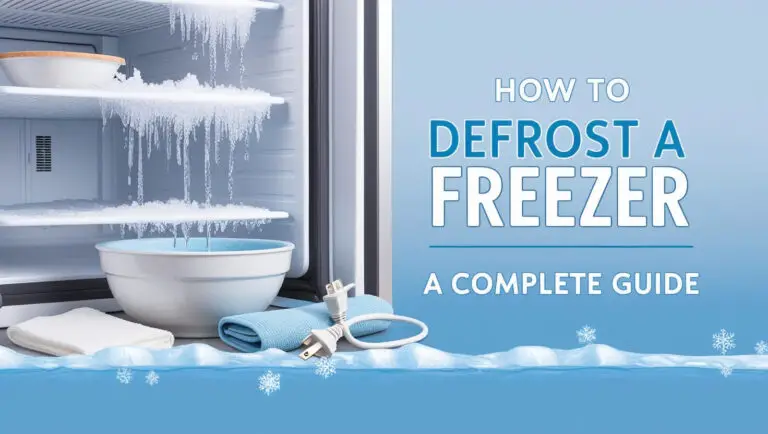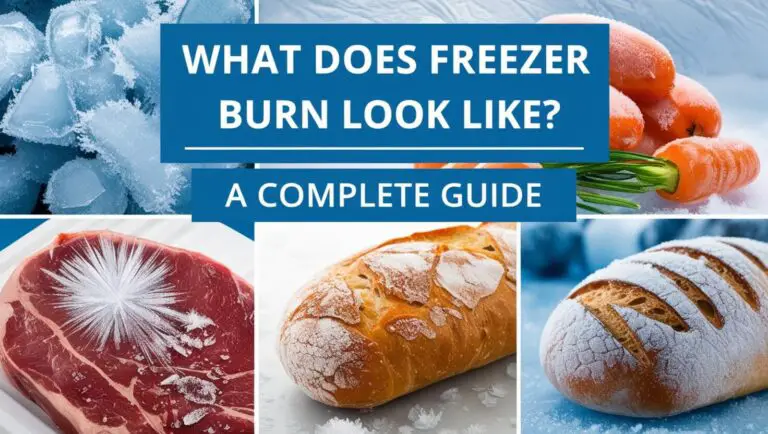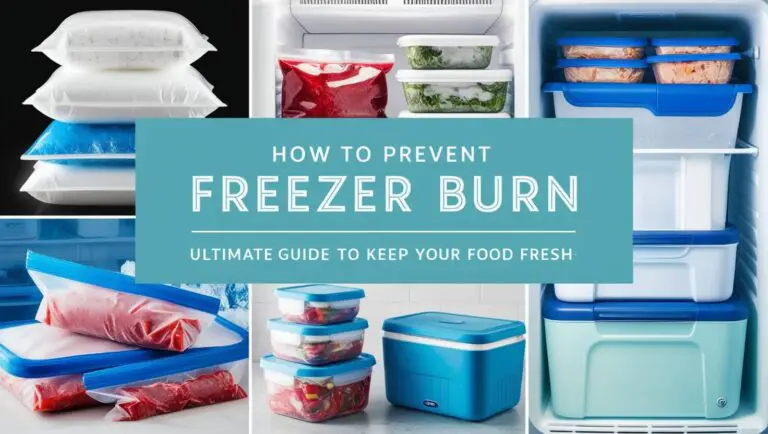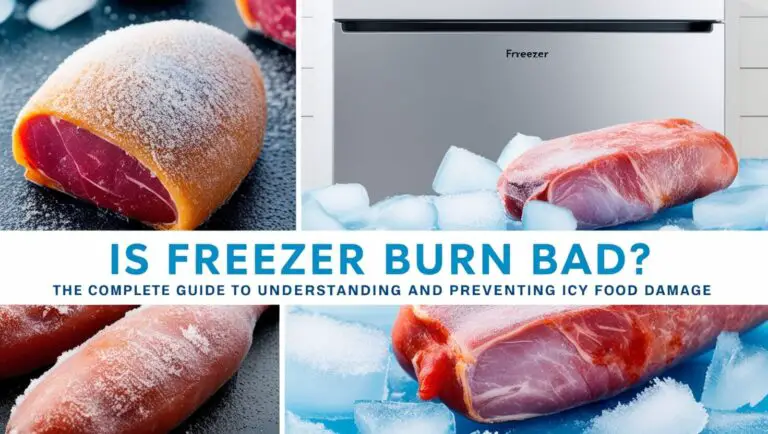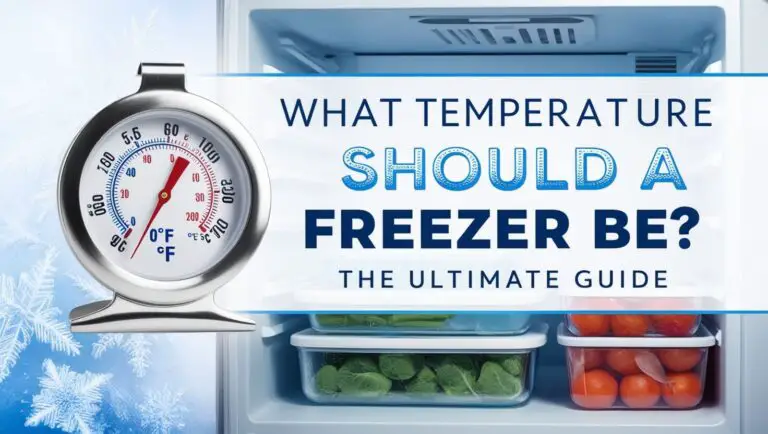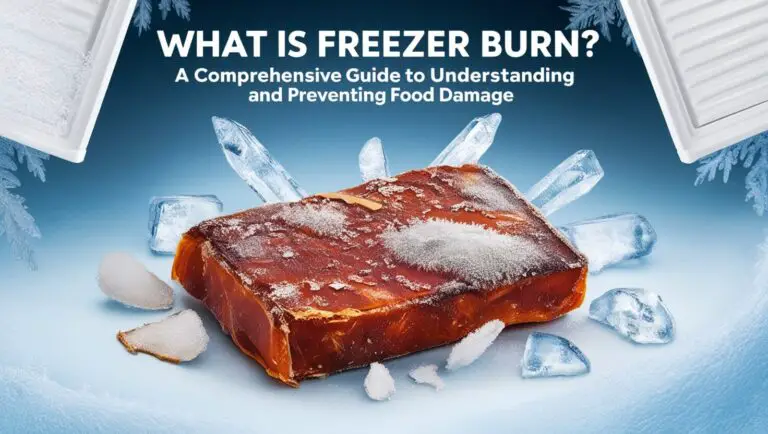Can You Put Glass in the Freezer? Safe Freezing
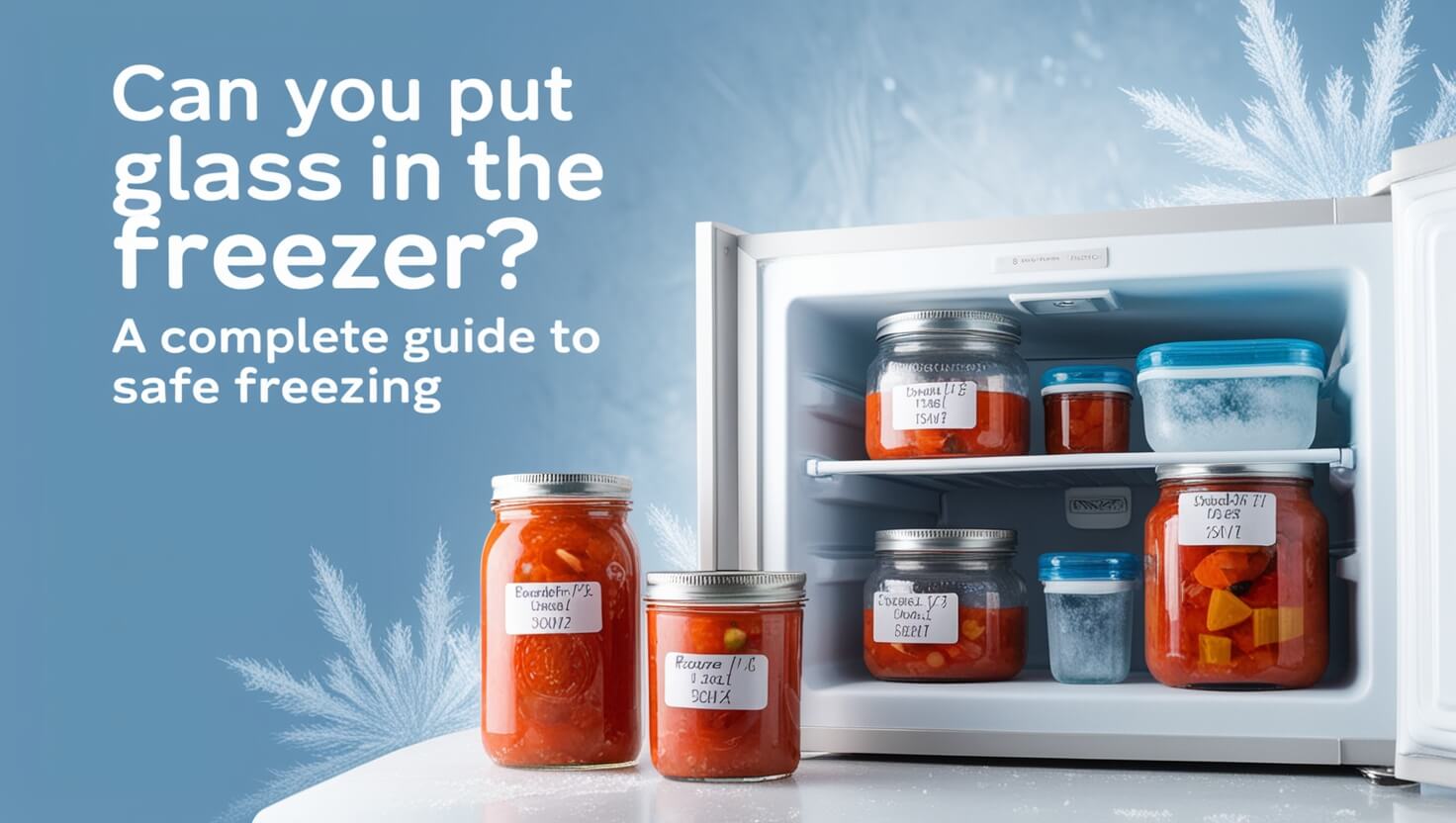
Glass containers are popular for storing food, but can you put glass in the freezer? The short answer is yes, but with some important caveats. Not all glass is created equal when it comes to freezing. This guide will walk you through everything you need to know about safely using glass in your freezer, from choosing the right containers to proper handling techniques.
Understanding Glass and Temperature Changes
Before we dive into the specifics of freezing glass, it’s crucial to understand how temperature affects this versatile material.
Types of Glass Commonly Used in Kitchens
Several types of glass are commonly found in kitchens:
- Soda-lime glass: Most everyday glassware
- Tempered glass: Stronger and more resistant to temperature changes
- Borosilicate glass: Highly resistant to thermal shock
How Temperature Affects Glass
Glass expands when heated and contracts when cooled. This property is crucial to understand when considering whether to put glass in the freezer. Rapid temperature changes can cause stress in the glass structure, potentially leading to cracks or shattering.
The Concept of Thermal Shock
Thermal shock occurs when glass experiences a sudden temperature change. This rapid change causes different parts of the glass to expand or contract at different rates, creating internal stress that can lead to breakage.
Freezer-Safe Glass: What to Look For
Not all glass is suitable for freezer use. Here’s what to look for when choosing freezer-safe glass containers:
Tempered Glass
Tempered glass is heat-treated to increase its strength and resistance to temperature changes. It’s a good option for freezer storage, but it’s not completely immune to thermal shock.
Borosilicate Glass
Borosilicate glass is the gold standard for freezer-safe glassware. It contains boron trioxide, which gives it superior resistance to thermal shock. Many high-quality food storage containers and bakeware are made from borosilicate glass.
How to Identify Freezer-Safe Glassware
Look for labels or markings indicating “freezer-safe” or “freezer-to-oven safe.” If you’re unsure, contact the manufacturer or err on the side of caution and use alternative storage methods.
Risks of Putting Glass in the Freezer
While it’s possible to freeze glass safely, there are risks to consider:
Potential for Breakage
Improper use of glass in the freezer can lead to cracking or shattering. This is especially true for non-freezer-safe glass or when proper precautions aren’t taken.
Food Safety Concerns
If glass breaks in your freezer, it can contaminate your food with tiny shards. This poses a serious health risk and often means you’ll need to discard all potentially affected items.
Damage to Your Freezer
Broken glass can scratch or damage your freezer’s interior. It can also interfere with the freezer’s mechanical components if pieces fall into vents or moving parts.
Best Practices for Freezing Food in Glass Containers
Follow these guidelines to safely freeze food in glass containers:
Choosing the Right Container
Select containers specifically designed for freezer use. Look for thick, durable glass with straight sides. Avoid containers with shoulders or necks that can restrict the expansion of freezing liquids.
Proper Filling Techniques
Don’t overfill glass containers. Leave about 1-2 inches of headspace for liquids, as they expand when frozen. For solid foods, leave about 1/2 inch of space.
Cooling Before Freezing
Allow hot foods to cool completely before placing them in glass containers for freezing. This reduces the risk of thermal shock and helps prevent bacterial growth.
Labeling and Organizing
Label containers with contents and date. Organize your freezer to minimize the risk of containers falling or being knocked over.
Freezing Different Types of Glass Items
Different glass items require specific considerations when freezing:
Mason Jars and Canning Jars
Mason jars are generally freezer-safe, but choose wide-mouth jars for easier filling and removal of frozen contents. Avoid overfilling and don’t tighten lids until contents are fully frozen.
Glass Food Storage Containers
Many modern glass food storage containers are designed for freezer use. Look for those with secure, airtight lids to prevent freezer burn.
Pyrex and Other Oven-Safe Glassware
Pyrex and similar oven-safe glassware are typically safe for freezer use. However, avoid sudden temperature changes, like moving directly from freezer to oven.
Glass Bottles and Drinking Glasses
It’s generally not recommended to freeze liquids in glass bottles or regular drinking glasses. The risk of breakage is high due to liquid expansion.
Alternatives to Glass for Freezer Storage
While glass has many benefits, there are other options for freezer storage:
Plastic Containers
BPA-free plastic containers are lightweight and shatterproof. Choose freezer-safe varieties designed to withstand low temperatures.
Silicone Storage Bags
Reusable silicone bags are flexible, durable, and eco-friendly. They’re great for storing soups, sauces, and portioned meals.
Aluminum Foil and Freezer Paper
For short-term storage or wrapping foods before placing in containers, aluminum foil and freezer paper are effective options.
Comparing Pros and Cons
Each storage method has its advantages and disadvantages:
- Glass: Eco-friendly, non-porous, but can break
- Plastic: Lightweight, versatile, but may absorb odors
- Silicone: Flexible, reusable, but can be more expensive
- Foil/Paper: Affordable, moldable, but not suitable for long-term storage
Thawing Frozen Glass Containers Safely
Proper thawing is crucial to prevent breakage and ensure food safety:
Proper Thawing Methods
The safest way to thaw glass containers is in the refrigerator. This allows for a gradual temperature change, reducing the risk of thermal shock.
Avoiding Rapid Temperature Changes
Never place frozen glass directly in hot water or a heated oven. The sudden temperature change can cause the glass to shatter.
Signs of Glass Stress or Damage
Before using thawed glass containers, check for any signs of stress or damage:
- Cloudy appearance
- Tiny cracks or chips
- Unusual sounds when tapped gently
If you notice any of these signs, discard the container to avoid potential breakage during use.
Common Myths About Freezing Glass
Let’s debunk some common misconceptions:
Myth 1: All Glass is Freezer-Safe
Reality: Not all glass can withstand freezing temperatures. Always check for freezer-safe labeling.
Myth 2: Freezing Glass Makes it Stronger
Reality: Freezing doesn’t strengthen glass. In fact, improper freezing can weaken glass structure.
Myth 3: Thick Glass is Always Safer to Freeze
Reality: While thickness can help, the composition of the glass is more important for freezer safety.
Freezing Liquids in Glass: Special Considerations
Freezing liquids in glass requires extra care:
Expansion of Liquids When Frozen
Water expands about 9% when frozen. This expansion can put pressure on glass containers, potentially causing them to crack.
Headspace Requirements
Leave at least 1-2 inches of headspace when freezing liquids in glass. This allows room for expansion without putting stress on the container.
Specific Tips for Freezing Soups, Sauces, and Beverages
- Cool liquids completely before freezing
- Use wide-mouth containers for easier filling and removal
- Consider freezing in ice cube trays, then transferring to a glass container for long-term storage
Using Glass for Quick-Chilling Beverages
While it’s tempting to quickly chill drinks in the freezer, caution is necessary:
Safety Considerations
Rapid cooling can cause thermal shock in glass. Never put a room temperature glass bottle directly into the freezer.
Time Limits for Different Glass Types
If you must chill a glass bottle quickly:
- Regular glass: No more than 15 minutes
- Tempered glass: Up to 30 minutes
Alternative Rapid Cooling Methods
Safer alternatives for quick-chilling include:
- Ice baths
- Wet paper towel wrap + refrigerator
- Spinning the bottle in a bucket of ice water
Environmental Benefits of Using Glass in the Freezer
Using glass for freezer storage has several environmental advantages:
Reducing Plastic Waste
Glass containers are reusable and don’t contribute to single-use plastic waste.
Long-Term Durability of Glass
With proper care, glass containers can last for years, reducing the need for frequent replacements.
Recyclability of Glass
At the end of its life, glass is 100% recyclable without loss of quality.
Troubleshooting: What to Do If Glass Breaks in Your Freezer
Despite precautions, accidents can happen. Here’s what to do if glass breaks in your freezer:
Safety Precautions
- Unplug the freezer
- Wear thick gloves and closed-toe shoes
- Use tongs or a dustpan to remove large pieces
Cleaning and Sanitizing
- Remove all food items and discard any that may contain glass
- Defrost the freezer if necessary
- Vacuum small shards with a hose attachment
- Wipe down surfaces with a damp cloth
Preventing Future Incidents
- Organize your freezer to prevent items from falling
- Use protective mats or liners on freezer shelves
- Consider using alternative storage methods for high-risk items
Expert Tips for Maximizing Glass Use in the Freezer
Make the most of your glass storage with these expert tips:
Organizing Your Freezer Space
- Group similar items together
- Use stackable, uniform containers
- Implement a labeling system for easy identification
Meal Prep Strategies with Glass Containers
- Portion meals into individual servings
- Use oven-safe glass for easy reheating
- Freeze sauces and bases separately from other ingredients
Extending the Life of Your Glassware
- Handle with care, especially when frozen
- Avoid extreme temperature changes
- Inspect regularly for signs of wear or damage
Wrapping UP
Can you put glass in the freezer? Yes, but with careful consideration and proper techniques. By choosing the right type of glass, following best practices for filling and handling, and being aware of potential risks, you can safely and effectively use glass containers for freezer storage.
Remember, the key to successfully freezing glass is understanding its properties and treating it with care. Whether you’re storing leftovers, meal prepping, or just trying to keep your beverages cool, this guide should help you navigate the world of freezing glass with confidence.
Always prioritize safety, and when in doubt, opt for freezer-safe alternatives. With the right approach, glass can be an eco-friendly, versatile, and effective option for your freezer storage needs.

